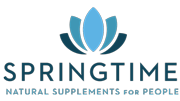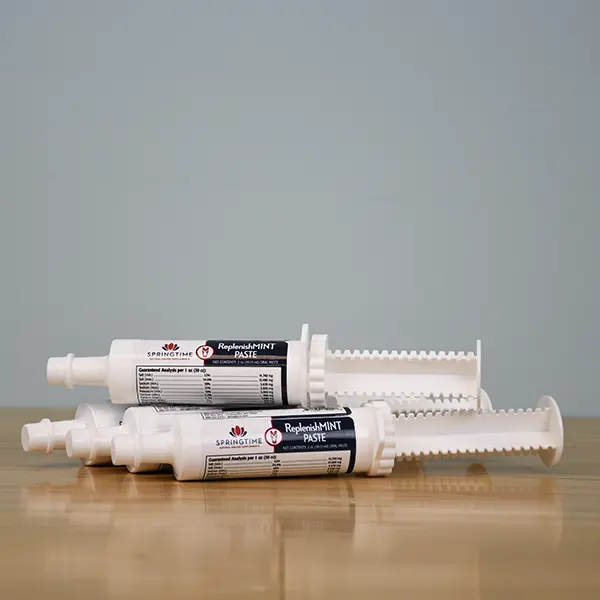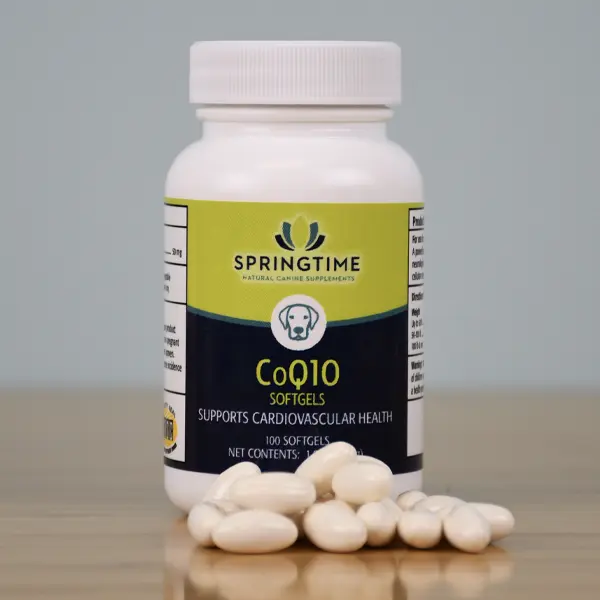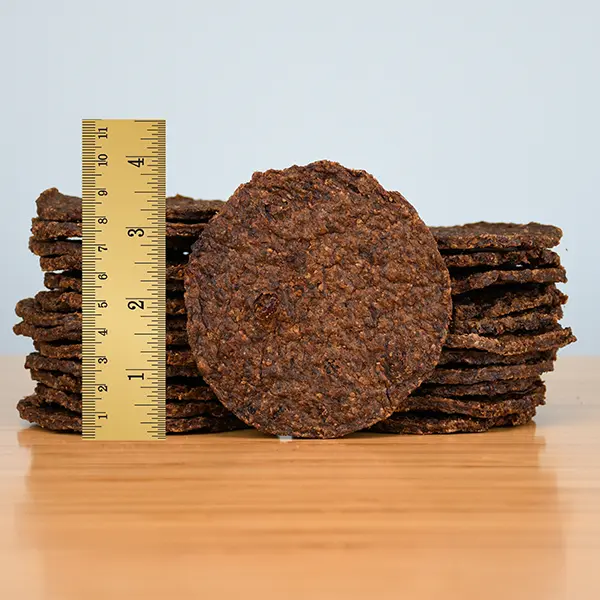All the bee pollen that Springtime supplies is carefully selected for purity and flavor. We search the hardest for the batches we use for people pollen, and we also set aside batches that are particularly colorful, as well. Even after 46 years in the business, it is still a thrill to see a unique new batch. You probably won't get the same thing twice, but you will get something good every time.
• Excellent source of live enzymes
• Hand-cleaned, mild, sweet – fruity/nutty flavor
• Mixed varieties of pollens provide a wide spectrum of essential nutrients
• Contains healthy antioxidants*
• Add to cereal for the ultimate power breakfast
• Great for everyone at any age
| Active Ingredients per ounce | |
| Bee pollen granules | 28 g |
Inactive ingredients: None. | |
Bee Pollen is a natural substance collected by bees from plant pollen. It is rich in nutrients, including vitamins, minerals, amino acids, and antioxidants. Due to its nutrient density, bee pollen is used as a dietary supplement to support overall well-being and a balanced diet.
The antioxidants in bee pollen help protect cells from oxidative stress, supporting the body's natural defense system. Bee pollen is also a source of easily digestible protein, which can contribute to muscle maintenance and recovery, particularly for active individuals.
Additionally, some people use bee pollen to support healthy energy levels, as it contains natural carbohydrates and B vitamins, which help sustain the body's energy metabolism. It may also help maintain healthy skin and hair by supplying essential nutrients that support the body's natural renewal processes.
Bee pollen is commonly consumed as granules or in capsules and can be added to smoothies, yogurt, or other foods for an extra nutritional boost. However, individuals with pollen allergies should exercise caution and consult a healthcare provider before use.
| PARTIAL ANALYSIS OF BEE POLLEN CONTENT | ||||
| MINERALS 1. Calcium 2. Phosphorus 3. Potassium 4. Sulphur 5. Sodium 6. Chlorine 7. Magnesium 8. Iron 9. Manganese 10. Copper 11. Iodine 12. Zinc 13. Silicon 14. Molybedenum 15. Boron 16. Titanium 17. Selenium | ENZYMES, CO-ENZYMES 1. Amylase 2. Diastase 3. Saccharase 4. Pectase 5. Phosphatase 6. Catalase 7. Disphorase 8. Cozymase 9. Cytochrome systems 10. Lactic dehydrogenase 11. Succinic dehydrogenase 12. 24 oxidoreductases 13. 21 transferases 14. 33 hydrolases 15. 11 lyases 16. 5 isomerases 17. Pepsin 18. Trypsin | PROTEINS/AMINO ACIDS 1. Isoleucine 2. Leucine 3. Lysine 4. Methionine 5. Phenylaine 6. Threonine 7. Tryptophan 8. Valine 9. Histidine 10. Arginine 11. Cystine 12. Tryrosine 13. Alanine 14. Aspartic acid 15. Glutamic acid 16. Hydroxyproline 17. Proline 18. Serine | VITAMINS 1. Provitamin A 2. B1 Thiamine 3. B2 Riboflavin 4. B3 Niacin 5. B4 Group 6. Pantothenic acid 7. Biotin 8. B12 (cyanocobalamin) 9. Folic Acid 10. Choline 11. Inositol 12. Vitamin C 13. Vitamin D 14. Vitamin E 15. Vitamin K 16. Rutin OTHERS 1. Nucleic Acids 2. Flavonoids 3. Phenolic acids 4. Tarpenes 5. Nucleosides | OTHERS(cont.) 6. Auxins 7. Fructose 8. Glucose 9. Brassins 10. Bibberellins 11. Kinins 12. Vernine 13. Guanine 14. Xanthine 15. Hypoxalthine 16. Nuclein 17. Amines 18. Lecithin 19. Xanthophylls 20. Crocetin 21. Zeaxanthin 22. Lycopene 23. Hexodecanal 24. Alpha-Aminobutyric acid 25. Monoglycerides 26. Diglycerides 27. Triglycerides 28. Pentosans |

All the bee pollen that Springtime supplies is carefully selected for purity and flavor. We search the hardest for the batches we use for people pollen, and we also set aside batches that are particularly colorful, as well. Even after 46 years in the business, it is still a thrill to see a unique new batch. You probably won't get the same thing twice, but you will get something good every time.
• Excellent source of live enzymes
• Hand-cleaned, mild, sweet – fruity/nutty flavor
• Mixed varieties of pollens provide a wide spectrum of essential nutrients
• Contains healthy antioxidants*
• Add to cereal for the ultimate power breakfast
• Great for everyone at any age
| Active Ingredients per ounce | |
| Bee pollen granules | 28 g |
Inactive ingredients: None. | |
Bee Pollen is a natural substance collected by bees from plant pollen. It is rich in nutrients, including vitamins, minerals, amino acids, and antioxidants. Due to its nutrient density, bee pollen is used as a dietary supplement to support overall well-being and a balanced diet.
The antioxidants in bee pollen help protect cells from oxidative stress, supporting the body's natural defense system. Bee pollen is also a source of easily digestible protein, which can contribute to muscle maintenance and recovery, particularly for active individuals.
Additionally, some people use bee pollen to support healthy energy levels, as it contains natural carbohydrates and B vitamins, which help sustain the body's energy metabolism. It may also help maintain healthy skin and hair by supplying essential nutrients that support the body's natural renewal processes.
Bee pollen is commonly consumed as granules or in capsules and can be added to smoothies, yogurt, or other foods for an extra nutritional boost. However, individuals with pollen allergies should exercise caution and consult a healthcare provider before use.
| PARTIAL ANALYSIS OF BEE POLLEN CONTENT | ||||
| MINERALS 1. Calcium 2. Phosphorus 3. Potassium 4. Sulphur 5. Sodium 6. Chlorine 7. Magnesium 8. Iron 9. Manganese 10. Copper 11. Iodine 12. Zinc 13. Silicon 14. Molybedenum 15. Boron 16. Titanium 17. Selenium | ENZYMES, CO-ENZYMES 1. Amylase 2. Diastase 3. Saccharase 4. Pectase 5. Phosphatase 6. Catalase 7. Disphorase 8. Cozymase 9. Cytochrome systems 10. Lactic dehydrogenase 11. Succinic dehydrogenase 12. 24 oxidoreductases 13. 21 transferases 14. 33 hydrolases 15. 11 lyases 16. 5 isomerases 17. Pepsin 18. Trypsin | PROTEINS/AMINO ACIDS 1. Isoleucine 2. Leucine 3. Lysine 4. Methionine 5. Phenylaine 6. Threonine 7. Tryptophan 8. Valine 9. Histidine 10. Arginine 11. Cystine 12. Tryrosine 13. Alanine 14. Aspartic acid 15. Glutamic acid 16. Hydroxyproline 17. Proline 18. Serine | VITAMINS 1. Provitamin A 2. B1 Thiamine 3. B2 Riboflavin 4. B3 Niacin 5. B4 Group 6. Pantothenic acid 7. Biotin 8. B12 (cyanocobalamin) 9. Folic Acid 10. Choline 11. Inositol 12. Vitamin C 13. Vitamin D 14. Vitamin E 15. Vitamin K 16. Rutin OTHERS 1. Nucleic Acids 2. Flavonoids 3. Phenolic acids 4. Tarpenes 5. Nucleosides | OTHERS(cont.) 6. Auxins 7. Fructose 8. Glucose 9. Brassins 10. Bibberellins 11. Kinins 12. Vernine 13. Guanine 14. Xanthine 15. Hypoxalthine 16. Nuclein 17. Amines 18. Lecithin 19. Xanthophylls 20. Crocetin 21. Zeaxanthin 22. Lycopene 23. Hexodecanal 24. Alpha-Aminobutyric acid 25. Monoglycerides 26. Diglycerides 27. Triglycerides 28. Pentosans |



 Shop All Horse Products
Shop All Horse Products Shop All Dog Products
Shop All Dog Products




